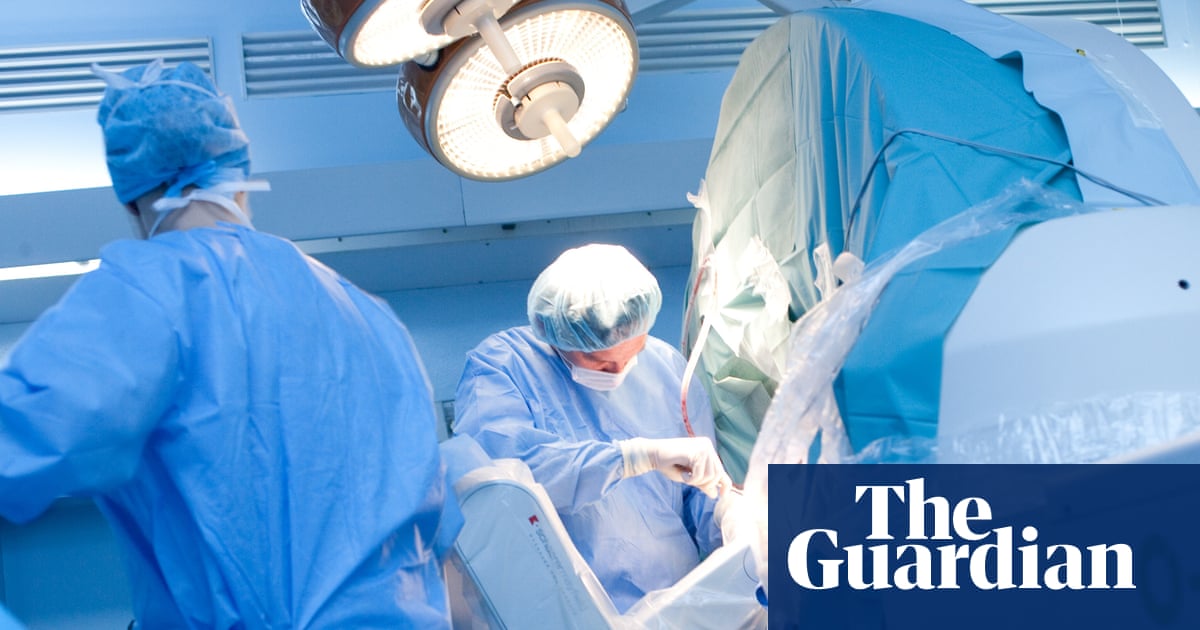A fresh approach to brain stimulation could offer people living with Parkinson’s better control over their symptoms and halve the duration of those that trouble them most, experts have said.
Deep brain stimulation (DBS) is now a mainstream treatment for people with Parkinson’s and can help with symptoms such as stiffness, slowness and tremor.
The approach involves implanting fine electrodes in the brain to provide electrical stimulation to specific areas that control movement.
At present, this stimulation is set at a constant level regardless of what the patient is doing, or the severity of their symptoms. As a result the technique can result in either understimulation, resulting in a breakthrough of symptoms, or overstimulation, leading to erratic movements.
Now experts say a big step has been taken towards improving the technique by enabling the level of stimulation to be automatically adjusted in response to a patient’s needs, based on real-time signals in the brain.
The team behind the work say further trials are needed to confirm the results of the pilot study, tweaks are required make it feasible for routine clinical practice, and clinicians will need training. However, they say the technology – known as “adaptive” DBS – could become widespread in a matter of years, with the costs expected to be similar to those of traditional DBS.
“Once these challenges are addressed, I am very optimistic that adaptive DBS will become a highly effective alternative to standard DBS for [Parkinson’s] and potentially other neurological and psychiatric conditions, offering more stable and personalised symptom control, with the potential to significantly improve patient outcomes,” said Dr Carina Oehrn from the University of California, San Francisco, the lead author of the research.
Writing in the journal Nature Medicine, Oehrn and colleagues describe how the pilot study involved four men with Parkinson’s who had been implanted with a DBS device, provided by a company for research.
“This device can sense brain activity and provide stimulation at the same time. Our job was to create the algorithms for the software that runs on this device,” said Oehrn.
The team discovered an increase in a particular type of brain signal was associated with rising levels of dopamine as the participants’ medications kicked in, and an easing of their motor symptoms.
Oehrn said that allowed the team to create algorithms that could increase DBS stimulation when this signal was low and decrease it when this signal was high.
The team tailored the algorithms to each individual and their most bothersome symptom, resulting in a system whereby participants’ brain signals were continuously monitored and the electrical stimulation automatically adjusted in response to their needs.
The four participants received traditional DBS and this new approach for one month each, but were not told which technique was being used.
The results reveal participants spent about 50% less waking time experiencing their most bothersome symptom when receiving adaptive DBS compared with traditional DBS, while three of the four reported having a better quality of life.
The team say medications will still be required alongside adaptive DBS, although potentially in lower doses.
“Medications are needed often to support mood as well as movement in Parkinson’s disease, and so shouldn’t be stopped completely,” said Dr Simon Little, another author of the study, also from the University of California, San Francisco.
Claire Bale, the associate director of research at Parkinson’s UK, welcomed the research.
“Current DBS can be life-changing, but this major step forward could help manage the fluctuating symptoms people experience and reduce the number of side-effects,” she said.
However, Bale said the study only involved a small number of participants.
“The promising results support the need for larger clinical trials to confirm the therapy’s safety and effectiveness and provide the evidence required for ‘adaptive’ DBS to become a much-needed, approved new treatment for people with Parkinson’s,” she added.

Sarah Carter is a health and wellness expert residing in the UK. With a background in healthcare, she offers evidence-based advice on fitness, nutrition, and mental well-being, promoting healthier living for readers.








